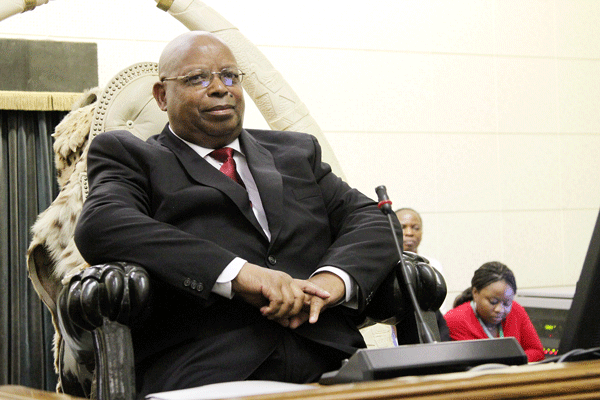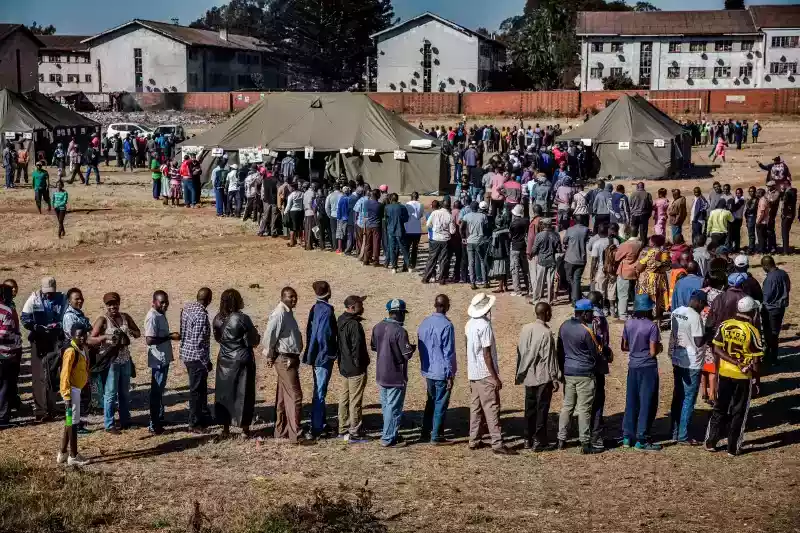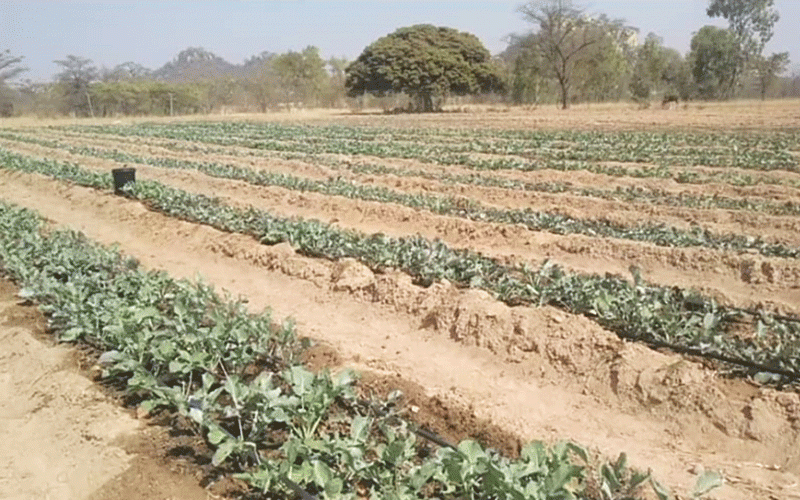
POLICY inconsistencies, financial leakages, a restrictive business environment, the huge civil service wage bill and porous borders are some of the many reasons Zimbabwe has failed to surpass a $4 billion budget for years.
By VENERANDA LANGA
Post-budget analysts have predicted a tough 2017, particularly if the government fails to implement its policy pronouncements made during the 2017 National Budget, as well as to revise the indigenisation regulations that have been seen as one of the deterrents to doing business in the country.
Speaker of the National Assembly, Jacob Mudenda, recently told stakeholders at a post-budget seminar in Harare that, “we are our own economic liberators” and, therefore, different brains in economics in the country need to pursue home-grown remedies towards revenue mobilisation.
Mudenda, in his proposed solutions to Zimbabwe’s economic quagmire, said it was possible for the country to surpass a $10 billion budget if national resources were properly managed.
Economists said the burden of expanding the national cake should not solely rest on Finance minister Patrick Chinamasa.
“We feel that the issue of the $400 million financial gap must not be the burden of Chinamasa only. We need national dialogue on how to solve the financial gap,” Zimbabwe National Chamber of Commerce chief executive officer, Christopher Mugaga, said.
“We also need to restructure, commercialise and privatise parastatals because we are feeling the heat of under-performing State enterprises and parastatals (SEPs). Imagine if they were performing and declaring $2 million as dividends each, financing the $400 million gap will not be a problem.”
- Chamisa under fire over US$120K donation
- Mavhunga puts DeMbare into Chibuku quarterfinals
- Pension funds bet on Cabora Bassa oilfields
- Councils defy govt fire tender directive
Keep Reading
Another economist, Godfrey Kanyenze said Zimbabwe’s economic underperformance is surprising, given the diverse natural resource endowment, and vast strengths and opportunities the country can derive from manufacturing, agriculture, mining and tourism.
“We need to strengthen interventions to stimulate production and supply across the various sectors; and to finalise the outstanding components of the re-engagement process with international financial institutions,” he said.
“We also need to entrench structural reforms to improve the domestic business and the investment environment, that is vital for restoration of confidence, lowering the ease and cost of doing business and product competitiveness.”
Currently, Zimbabwe is saddled with an unsustainable import bill of $5,35 billion versus an export bill of $3,365 billion.
Bankers’ Association of Zimbabwe president, Charity Jinya, said the indigenisation regulations need clarification, adding the government needs to walk the talk on policy pronunciations to promote small and medium enterprises, local companies and exporters.
“Government needs to review different forms of taxes on industry with a view to promote local industries still operational and exporters to attract new business. There is also need to introduce new tax incentives on power infrastructure and green solutions,” she said.
While Mudenda said leveraging of the country’s mineral base will improve capital inflows to the fiscus, Chamber of Mines chief executive officer, Isaac Kwesu bemoaned the high fees charged to mining companies.
“The Ministry of Finance proposed to reduce rural district council fees, but no policy measures were put in the budget to follow up on this as they affect cost of doing business. We are still appealing for removal of the 2% Environmental Management Agency fees to ensure we have sustainable environmental rehabilitation schemes.”
Kwesu said bulk water charges were also too expensive for mines, as they were being charged $50 per megalitre compared to $6 for other sectors of the economy.
Confederation of Zimbabwe Industries president, Busisa Moyo said the significant challenge in Zimbabwe was fiscal space to stimulate the economy.
“Permit restrictions are creating hurdles to exporters. There is need for internal devaluation to stimulate exports as our cost base is 55% higher compared to neighbouring countries,” he said.
Ministry of Macro-economic Planning secretary Desire Sibanda said there is need to focus on production to grow the economy, which was projected to grow by 7% by the ZimAsset blueprint, but due to lack of productivity, the projection went down to 1,7%.
Sibanda said one of the ways to grow the economy is to focus on agriculture through adequate financing.
“Focus on agriculture is critical because the Maputo declaration says we must spend 10% of the budget on agriculture. We also need to improve the liquidity problem and lack of confidence in the banking industry, as well as improve revenue collection,” he said.
Sibanda said creation of special economic zones (SEZ) is critical for investment and is likely to bring very fast economic growth.
“Our ministry has come up with the SEZ Bill, which is now an Act. Countries with the fastest growth rates apply special economic zones. That is why we are behind Zambia, where Copper is a special economic zone. Each province in Tanzania is a special economic zone,” he said.
Sibanda said other economic enablers will be value addition in mining and other produce sectors, Diaspora remittances and curbing financial leakages.
“Other countries have 25% of their gross domestic product as Diaspora remittances. Ethiopia’s Diaspora remittances are billions of dollars. We need to engage Zimbabweans in the Diaspora to invest.”
He said domestic finance utilisation is the way to go as the economy was now highly in-formalised.
“We need to come up with systems to tax the informal sector. State Enterprises and Parastatals have for the past 10 years been looking at reducing losses. We need to create and independent body that will look at reducing loses at SEPs,” Sibanda said.











